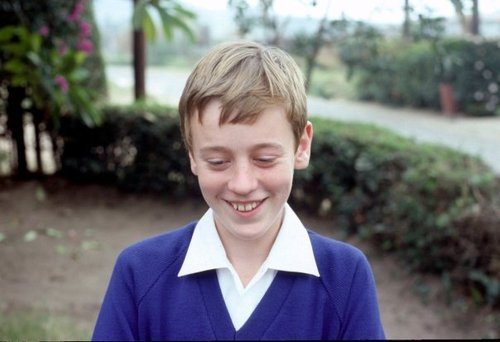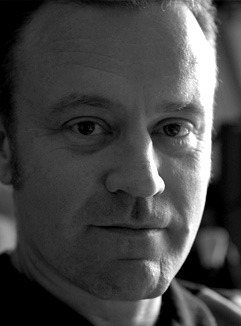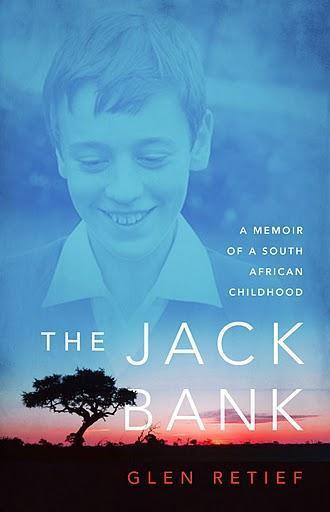"They tried to 'fix' me with fists and cricket bats"

This is the ninth post of our weeklong
series, Into the Light: A Series on Abuse and the Church, which
features the stories of abuse survivors, along with insights from professional
counselors, legal experts, and church leaders about how to better prepare
Christians to prevent and respond to abuse. Through the course of the
series, we will be discussing child abuse, spiritual abuse, sexual violence and
abuse, domestic violence, and bullying. Check
out the previous posts here.
Sadly, one of the most prevalent forms of
abuse occurs every day in the hallways and playgrounds of our schools in the
form of bullying. Really, we could devote a whole series to this topic, and perhaps
at some point we will. But for our purposes this week, I am delighted to
introduce you to writer Glen Retief. Glen is a South African writer living in
central Pennsylvania. He writes fiction, memoir, literary journalism, and
personal essays, and he teaches at the Writers’ Institute at Susquehanna
University. Glen’s memoir, The Jack Bank, won
a Lambda Literary Award for Gay Memoir. Glen’s story not only highlights
the ways in which he was bullied as a child, but also the homophobia that
fueled that bullying, which tragically, is too often allowed to fester in a
Christian environment. I hope you will learn as much from his story as I did.
***

I grew up in South Africa
in the 1980s, in a time and place almost unimaginably different from most
American readers’ homes. My father worked as a conservation biologist in
the Kruger National Park. Impala kept our lawn mowed. Riding our
bikes around the village, we had to keep an eye out for hippo, buffalo, and
lions. The village shop, like most businesses in the country, was
reserved for whites only: Swazi maids had to show the cashier a letter from a
white “madam” if they were to be allowed to buy groceries.
Apart from apartheid,
Christianity—or at least the Afrikaner Calvinist version of it—defined the
country’s national identity. My family was Catholic, but in Moral
Preparedness class on Fridays in my government elementary school, I was taught
that Earth was 4000 years old and that the first humans were literally Adam and
Eve. I was notified that Beatles records had Satanic chants encoded on
them backwards, that Soviet satellites were broadcasting atheist messages on
microwave frequencies that corresponded to those of the human brain, and that
the Pope was probably the anti-Christ referenced in Revelation. As you
can imagine, there were some interesting lunch table conversations at home
prompted by the question, “What did you learn at school today, Glennie?”
Because there were no
high schools in the immediate vicinity of our home village, at age 12 I was
sent away to a government boarding school. As in the Harry Potter books,
17-year old prefects were responsible for maintaining order in the
hallways. Unlike at Hogwarts, though, new students at my school were
subjected to humiliating, often sexual initiation rituals. Also, the
preferred method of maintaining discipline was corporal punishment with a
cricket bat, blows of which were colloquially known as “jacks.” While
official rules forbade this practice, teachers and administrators turned a
blind eye in the belief that it promoted order and also was healthy for young
men who needed to learn endurance.
As a bookworm who didn’t
like sport and who showed no visible interest in girls, I attracted far more
abuse than most of the other boys. Given the country’s moral censorship,
I had never met an openly gay person in real life, via books, or on television.
However, somehow the older boys figured out I must be “gay” and a “nancy boy.”
They were right about the gay part—they knew more about me back then than I
realized about myself—but their wrong-headed conclusion was that I needed to be
“toughened up” and “made into a man.”
I won’t repeat here what
I have described at length in my book, The Jack Bank about this
violence. I was beaten at least once or twice a week, mostly with a
cricket bat, but sometimes with fists or with a pillow slip filled with
athletics spikes. I was told I was pathetic, sick, and perverted. I
lived in constant terror of being attacked. I lost weight and appetite,
watched my grades plummet, felt sad most of the time, and at one point even
contemplated killing myself.
Christianity’s role in
all of this seemed paradoxical. On the one hand my faith in Jesus was
intensely comforting to me. I would kneel in church and look at the
carved wooden Stations of the Cross. Those whips and nails: they were
inflicted on Jesus because of his Goodness. Jesus was my
inspiration. If He could be resurrected after torture and death, I could
survive bullying. I also knew if I harmed myself, it would be my loving
Catholic family who would suffer, not my macho tormentors.
On the other hand,
Christian teaching—as I heard it in the classroom—seemed to reinforce what the
bullies were saying.
“The Christian way is for
men to be men, and women, women,” the preacher said in Youth Preparedness
class. “The communists want you all to be sissies, because then you won’t
win on the battlefield. You also won’t have children, and our Black enemies
will outbreed us.” They were good, too, at quoting what LGBT people today call
“clobber passages,” like Romans 1 and Leviticus 18.

If I was homosexual and
unrepentant, I reasoned, God would throw me into hell. I could imagine
what hell might feel like. It might be my buttocks burning after corporal
punishment—like the fire of Biblical imagery. It could be a 17-year-old’s
fist slamming into my gut. It could be the loneliness of being bullied,
the self-hatred, regret, and separation from joy and love. It could be
despair.
So who, then, were my
bullies acting on behalf of—the Roman soldiers who flogged Jesus, and thus were
God’s enemies? Or God the father, rejecting LGBT people for eternity, the
way the bullies were rejecting me?
And who was God?
Was He a gentle, loving Savior? Or a homophobic bully?
In college, as I
continued to struggle with my sexual identity, I concluded the latter. I
realized I could never be happy on Earth pretending to be heterosexual. I felt
praying to become straight would be as blasphemous and arrogant as asking God
to change my height or eye color. I didn’t want to volunteer to shut out
romantic love from my life—the beautiful union of physical and spiritual
intimacy that straight people took for granted as a potential blessing life
might grant them—by committing to celibacy, and I thought the positive,
self-loving thing to do was to accept myself.
With adolescent logic,
though, I reasoned that if God was a bully, then I would have to be against
God. So I embraced atheism and gay human rights activism, becoming part
of a group which successfully lobbied for a clause banning discrimination on
the grounds of sexual orientation in South Africa’s postapartheid constitution.
Later in life, though, I
missed the God of my childhood. The God of my apartheid teachers and
prefects may have been a bigoted tyrant, but there was another God I had
experienced—the God who had kept me alive. I missed that God.
So in my thirties I
became a Quaker, practicing gentle, non-dogmatic spirituality—listening in
silent worship to the whisperings of love in my soul. Today, I call that
experience “God”—connecting with a peaceful and loving center in my heart—and
it means a lot to me in my day to day life.
Unlike many Quakers,
though, I still struggle with whether to call myself Christian. There’s a
bunch of different reasons for that, but at core, I think I struggle with a
deep-seated distaste for Christianity that comes from my life
experiences.
years, who felt that they had the authority of Leviticus, Romans, and a
Christian government behind them when they tried to “fix” me with fists and
cricket bats. It’s hard to embrace the religion that deeply hurt you.
So today, will Christians
stand with the Jesus I pictured in my youthful distress, understanding what it
means to suffer, and reaching to comfort persecuted LGBT people without
judgment? Or will they stand with my Christian-identified prefects,
holding a cricket bat or a Bible passage, and readying themselves to beat
someone with it? The spiritual futures of people like me may hinge on how
Christians answer this question.
***
Be sure to check out Glen's book, The Jack Bank. You can read an excerpt here. Learn more about Glen on his Web site.
Additional Resources:
The Bully Project (The documentary film, “Bully,” is especially eye-opening)
“Understanding Bullying” – Psychology Today



Rachel Held Evans's Blog
- Rachel Held Evans's profile
- 1710 followers



